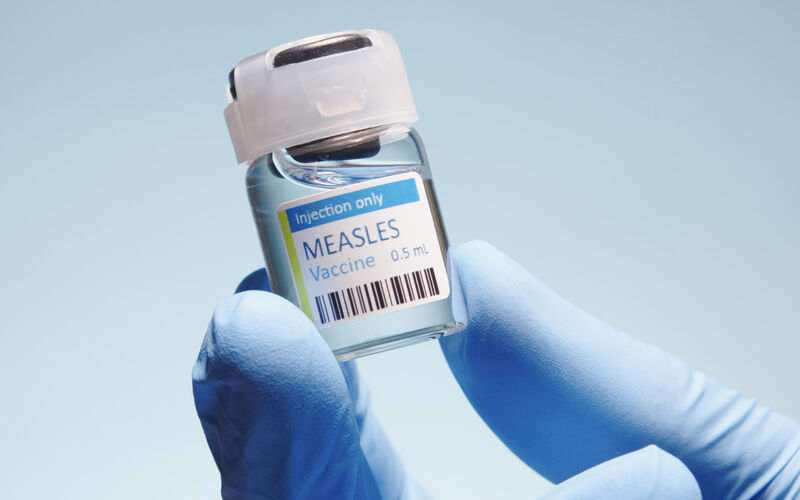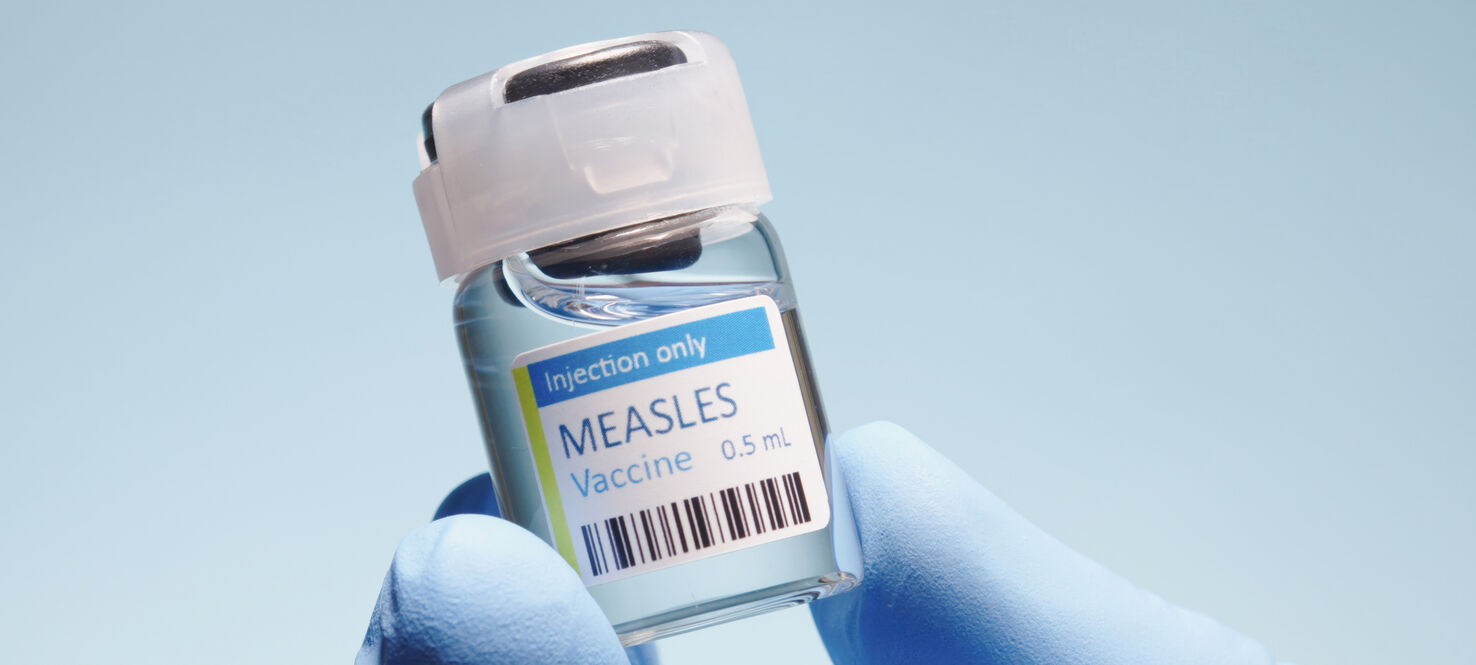What Should You Know About Measles?
Measles is a viral infection spread through airborne transmission and direct contact with a contaminated surface or object. It is a highly contagious disease and can stay suspended in the air for a long period of time. Symptoms of measles begin to show within the first seven to 14 days and can include high fever, cough and irritated eyes. Once symptoms begin to show, those infected can develop a rash that starts as flat red spots.
Those with a compromised immune system, like cancer patients, are at a higher risk for developing severe complications from the virus, including pneumonia and encephalitis (swelling of the brain).
The Measles, Mumps and Rubella (MMR) Vaccine can be given to someone at any age, although the Centers for Disease Control and Prevention recommends receiving the first dose from 12 to 15 months of age and the second dose from 4 to 6 years old.
The U.S. Advisory Committee on Immunization Practices does not recommend unvaccinated cancer patients receiving treatment get the vaccine. Live vaccines like the MMR vaccine should be given at least four weeks before starting treatment, and inactivated vaccines should be administered at least two weeks prior.

John Greene, MD
According to John Greene, MD, chair of the Infectious Diseases Program at Moffitt Cancer Center, there are protective measures patients can use to reduce their risk.
“Make sure those around you have been vaccinated against measles, as we do for all of our health care workers who care for our patients at Moffitt,” he said. “Avoid large crowds and keep your distance from others when possible. You can also wear a mask when you are out in public.”
At Moffitt, staff have been informed to recognize the symptoms of measles. When someone presents a fever, cough, runny nose or rash, they can be properly isolated.
Although not everyone is eligible to receive the MMR vaccine, Greene recommends individuals get it if it is deemed appropriate by their health care provider.




